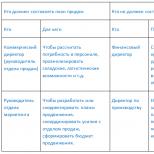Apartment insurance. Why do this?
Question: to insure the apartment or wait a little longer - it was hanging in the air for a long time. And although the inner readiness has been around for a long time, something constantly prevented me from completing this business. But it turned out, as always: unexpectedly and sadly. An accident that fell on us in the form of a hot water pipe burst accelerated this process.
After eliminating all the consequences of this terrible flooding and taking a little breath, the first thing that was done was that the insurance was finally issued. Moreover, the whole procedure was spent literally 10-15 minutes and a little money. A mere trifle in comparison with the moral and material costs that the family faced after flooding not only their own, but also the apartment of their neighbors.
The insurance was arranged with an insurance company via the Internet and paid for with a card. The insurance policy also came by email. I didn't have to go anywhere. Why did I decide to tell you about this? Yes, simply because, perhaps, some of you also cannot decide whether you need to insure your home or all this is a waste of money.
The question, of course, everyone decides for himself. But this is what I understood in connection with all the events that took place. If such a thought has arisen, you should not just throw it away. Perhaps it is the Universe itself (intuition, or call it what you want) that sends you signs and warns of danger. I ignored these "messages". For which she paid.
In our country, home insurance is voluntary and optional. And, in fact, this process is just gaining momentum, being practically in its infancy. Compared with European countries, where 80-90% of the population simply cannot imagine a situation where their housing would not be insured (as well as other aspects of life, such as health, life), then only 5-7% of Russians enjoy insurance coverage for their home. However, many insurance companies develop and offer a variety of programs related to home and property insurance.
First of all, the question arises: where to insure an apartment and how to choose an insurance company. Before concluding a contract, you need, at least superficially, to familiarize yourself with various offers on the market, study the ratings and reputation of insurers. An indirect proof of the company's reliability can be a variety of insurance risks, various types of insurance, the ability to draw up insurance programs for individual needs.
And already, based on your priorities in choosing risks, paying attention to the cost of insurance and the offered rates, you can look for the most suitable offers. It should be borne in mind that the final individual tariff, due to the existence of various multiplying coefficients, may differ from the base rates.
When purchasing an insurance policy, an appropriate contract is concluded between the insurer (an organization that provides insurance services and undertakes to compensate for damage in the event of an insured event) and the insured (a person who insures his home against certain misfortunes chosen by him).
In addition to the insurer and the insured, third parties may also be involved in this transaction: those from whose actions you suffered (for example, neighbors who flooded your apartment), and those who, on the contrary, suffered as a result of an accident in your apartment and suffered material damage (for example , due to your fault the neighbors have damaged the repair).
Insurance objects
You can insure a house, an apartment, any real estate, from anything: from a fire, a lightning strike, from flooding with water from heating, plumbing, sewer systems and when extinguishing fires, from leaks from the roof, from robbery and theft, from the risk of using household appliances, from the explosion of household or main gas, during natural disasters and even such very exotic risks as falling meteorites. And also it can be civil liability in the operation of housing by the owners of the apartment.
At the same time, you need to understand that it will not be possible to insure against everything right away. But having carefully studied the list of risks offered in standard policies, it is possible to supplement and adjust it.
Home insurance programs
Insurance is presented on the market in the form of classic products and in the form of "box" programs, in which individual sets of risks are selected for each object. For owners of typical real estate: summer cottages, middle class apartments, inexpensive cottages, according to experts, "box" programs are well suited, in which conditions, insurance amounts and risks are already predetermined. A ready-made "box" is selected depending on the specific situation.
In many ways, such an insurance program is convenient for the client:
- Low cost
- Predefined (fixed) amounts of reimbursement, presented at a choice
- There is no need to pre-describe the property
- The ability to take out insurance on the insurer's website online.
At the same time, when choosing a product, of course, you need to take into account the risks that are covered by this product. For example, in the "box" versions, there is often no option such as insurance of an apartment against leaks through the roof of a multi-storey building (relevant for residents of the last floors).

The classic insurance program is an equally popular option. Its advantages are better service and wider coverage. The cost of the policy for classic insurance is always calculated individually and is determined by the number of included insurance objects and depends on the amount of insurance coverage. In this case, an inventory of the property and its preliminary assessment are carried out.
When issuing a policy, its owner is provided with additional options. This is the payment of expenses for a hotel during the restoration of housing damaged as a result of an insured event, reimbursement of losses from rent, the ability to insure valuable property, non-residential area, self-propelled vehicles, elements of landscape design.
Specific insurance products include insurance of real estate purchased at the construction stage (financial risks are insured when the construction period is delayed or the contractor goes bankrupt), buying an apartment on the secondary market (contract) or under a mortgage.
There is another type of home insurance - this is voluntary insurance, with the help of which we can automatically insure our real estate. To do this, you just need to pay the fee included in a separate line in the payment for utilities. This contribution is small. But, of course, in this case, the set of insurance risks, as well as the amount of compensation, are very modest.
To conclude a contract, each insurer develops its own list of documents:
- Statement. If the policy is drawn up by a representative of the policyholder, he is also paid the insurance indemnity upon the occurrence of an insured event (therefore, a notarized power of attorney must be presented to conclude the contract). When making a contract online, this document is also required upon the occurrence of an insured event.
- Passport
- Documents confirming ownership of housing and property (invoices, receipts, appraisal reports).
- In addition to the presentation of the required documents, it may be necessary to inspect and evaluate the housing, a preliminary inventory of the property carried out by an insurance agent.
How much does it cost to insure an apartment?
To navigate the price, it is necessary to study the rules of insurance in different companies and proceed from the fact that the price corresponds to the quality of services. Experts advise contacting large insurance companies that are known for their business reputation and high financial ratings.
Depending on various factors and a package of risks, the insurance rate for apartments is approximately from 0.15% to 0.45%. For example, the annual cost of insuring a small standard apartment (coverage of 1.5 million rubles) will be approximately 2.2 thousand rubles.
For suburban real estate - the insurance rate is from 0.45% to 1.5%. For a house insured for a million rubles, you will need to pay approximately 4.5 thousand rubles a year.
The market demanded "box" products with insurance coverage of up to 500 thousand rubles with average tariffs - from 0.25% to 0.45% (depending on the amount of the insured amount). For such a policy, its owner will pay about 1.5 thousand rubles a year.
When calculating the cost of a mortgage insurance policy, it is taken into account what the external walls, ceilings and partitions are made of, as well as the age of the house. Insurance is more expensive if the house is older. Its cost is increased by the presence of a gas water heater, fireplace, sauna in the house.

If you have any difficulties with determining the sum insured, you can contact an independent expert appraiser or insurance agent. When declaring a significant insured value, you must be ready to confirm its size with documents.
Owners of large country houses are unlikely to do without the help of an expert. While for inexpensive suburban objects (country houses in garden associations), express insurance programs are quite suitable.
For how long can housing be insured?
As a rule, housing is insured for a year. Other options are possible though. For example, it is possible, for some other period, when the owner will not live in the apartment, or, say, for the period of renovation of a neighbor's apartment located above the floor.
But can this option be considered an economy? Insurance experts believe this is not always advisable. For short-term insurance, the cost of insurance is calculated according to the short-term insurance scale. And as a result, compared to the cost of the annual insurance, the client will purchase more expensive insurance. Since insurance for a month is more expensive.
It will be much more profitable to reduce the cost of insurance by selecting more likely risks for each object. Why insure, for example, the interior decoration or construction of an apartment against theft?
Subtleties of insurance
When drawing up an insurance policy, experts recommend:
- contact reliable insurance companies
- do not hesitate to ask questions and find out everything that is not clear
- do not make the cost of the insurance policy the main criterion when choosing a company (savings can turn into big losses)
- if possible, try not to eliminate the consequences of the insured event before the arrival of the insurance agent, so that the assessment of the scale of the damage caused is more fair
- read the insurance rules carefully, paying attention to such aspects as:
- Mechanism for assessing the damage caused (the amount of compensation depends on this parameter)
- When, where and how to report an insured event
- List of risks stipulated by the contract
- Conditions and procedure for payment of insurance, terms during which the damage is reimbursed, after submitting all the required documents
- Reasons why a refusal to pay damages is possible.
Let us dwell on this point in more detail. Imagine that, having insured yourself against various misfortunes, you regularly paid insurance premiums, and suddenly, when that very unforeseen event occurred, you did not inform the insurance company in time or did not find the time and energy to collect the required full package of documents.

What happens in this case? You will simply be denied insurance payments. Because the late filing of a statement about the event in the company is one of the reasons for the refusal. The contracts clearly spell out the clause on the immediate appeal to the insurer, which must, in hot pursuit, conduct an examination before compensating for the damage. An excuse for a sluggish policyholder can only be a good reason, for example, a business trip, illness. In this case, it is possible to restore the term, but in court.
The second common reason is incorrectly executed documents or incomplete submitted documents. At a minimum, an inventory of the damage caused must be attached to the statement of the insured event and this must be documented.
The third reason is fraudulent activities. You should not try to deceive the insurer and extract a larger amount of compensation from it, providing false information about the scale of the disaster and inflating the cost of damage. And even worse, initiating an insured event or resorting to any illegal actions. This can not only serve as a reason for refusal, but also lead to criminal liability in some cases.
You can be left without payment due to the negligence or negligence of the policyholder and the owner of the property (a common example: the landlord fell asleep with a cigarette not extinguished, which provoked a fire), if this is proven by expert examination. Another reason is that due to inattention when signing the contract, your case may not correspond to the risks specified in it.
Take care of yourself and your property!






